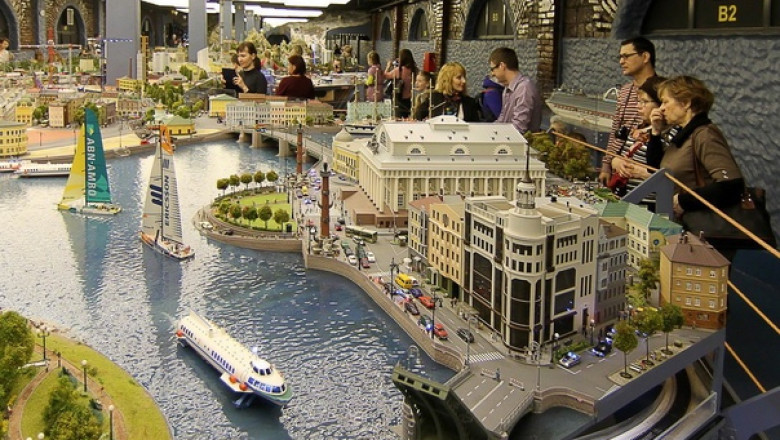views
History of Museums
Museums have a long history dating back to the early 1700s. Some of the earliest museums included the Ashmolean Museum in Oxford (1683), established as the world's first university museum, and the British Museum in London (1753), which housed a vast collection of artifacts and art. These early museums were typically housed in grand neoclassical buildings and served an educational purpose by displaying objects from around the world as a way to teach about different cultures, history, sciences and more. By the late 1700s and early 1800s, more specialized museums opened focusing on fine art, natural history and archaeological collections. The establishment of museums accelerated in North America and Europe during the Industrial Revolution of the 19th century as the growing middle class had more leisure time and interest in culture and education.
Types of Museums Today
Today there are hundreds of types of Museum that can be broadly categorized. Art museums exhibit works of art including paintings, drawings, sculpture and more. History museums tell the story of people, places and events in history. Science and technology museums explore topics in fields like physics, chemistry, computers, aviation and more through interactive exhibits. Children's museums are designed specifically for kids with engaging, hands-on activities and exhibits. Nature centers and zoos house live animals and educate about various ecosystems. Specialized museums focus on niche topics like railroads, automobiles, medicine, sports and more. Some museums take a more immersive approach through living history museums that recreate historical settings or periods. Virtual and online museums are also emerging that provide virtual tours and digital collections.
Role of Museums in Society
Modern museums play an important role in society in several ways. They preserve cultural heritage by collecting, conserving and displaying significant artifacts and works of art for current and future generations. This helps promote an understanding of history, culture and science. Museums serve an educational function by providing contextual information to interpret their exhibitions and foster new knowledge and skills. Through rotating exhibits, programming and events, museums aim to be continually engaging and keep visitors returning. Economically, museums have become tourist attractions that boost local economies through attendance, memberships, museum shop sales and more. They play a role in strengthening cultural identity and civic pride in a community. Museums aim to be inclusive institutions that reflect the diversity of their surrounding populations and global cultures.
Challenges Facing Museums
While museums fulfill valuable roles, they also face ongoing challenges that require adaptation. Funding is a perennial issue as museums rely on a mix of ticket sales, memberships, donations, grants and government support which fluctuate with economic trends. Attendance numbers can decline if museums fail to continually refresh their programming and exhibits to remain compelling destinations. Competition for visitors and donor dollars is intense with many cultural and entertainment options. Keeping collections secure and properly stored requires substantial resources. Advancing technologies require investing in digital initiatives to engage virtual audiences and provide new educational experiences. Societal issues like diversity, accessibility and serving underprivileged groups present challenges to ensure inclusiveness. The coronavirus pandemic has significantly impacted operations through lengthy closures, reduced attendance capacity and shifted priorities towards online outreach. Effectively navigating these challenges shapes the sustainability and relevance of museums for future generations.
Role of Museums as Cultural Centers
Modern museums increasingly aim to serve as cultural hubs within their communities. Beyond exhibiting collections, they host events, performances, lectures, art classes and other educational activities. Museum cafes and gardens have become community gathering spaces. Partnerships with schools, universities and other organizations strengthen their role as places of lifelong learning. Many museums operate children's discovery areas and family programs on weekends. Special after-hours events attract new audiences and support for museums. Exhibits explore thought-provoking topics that spur discussions on issues in science, history and culture. Some museums house research libraries where scholars can access rare resources. By acting as cultural centers, museums extend their educational and social impact while also increasing community engagement critical for long-term viability. This evolution nurtures museums as vibrant places where people come together to experience, learn from and enjoy the arts and aspects of human knowledge and achievement.
Ensuring the Future of Museums
For museums to continue thriving long into the future, addressing certain challenges will be crucial. Strategically diversifying funding streams through membership campaigns, corporate sponsorships, endowments and philanthropic giving can stabilize operating budgets. Boldly remodeling exhibition spaces and developing new programs keeps pace with changing visitor expectations and technology. Prioritizing inclusiveness, accessibility and community relevance strengthens relationships with residents of all backgrounds. Forming creative collaborations with educational institutions, corporations, artists and nonprofit causes multiplies promotional reach and community impact. Preserving and digitizing collections makes precious cultural heritage broadly accessible online. Continual upgrading of digital platforms nurtures virtual visitors and new technologies that engage people. By thoughtfully innovating strategic direction and evolving their roles in society, museums lay foundations to remain vibrant centers of history, art and discovery for generations to come.
Get this Report in Japanese Language:
Get this Report in Korean Language:
About Author:
Money Singh is a seasoned content writer with over four years of experience in the market research sector. Her expertise spans various industries, including food and beverages, biotechnology, chemical and materials, defense and aerospace, consumer goods, etc. (https://www.linkedin.com/in/money-singh-590844163)






















Comments
0 comment